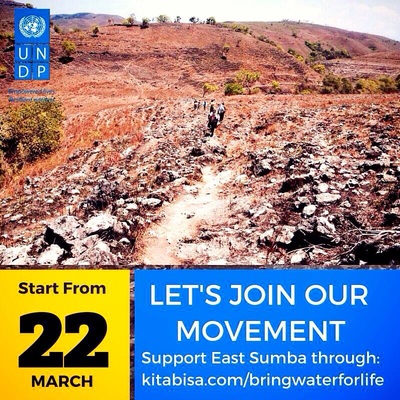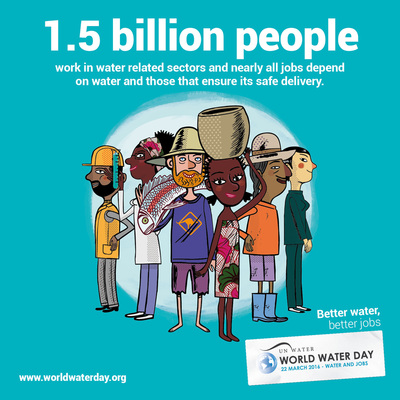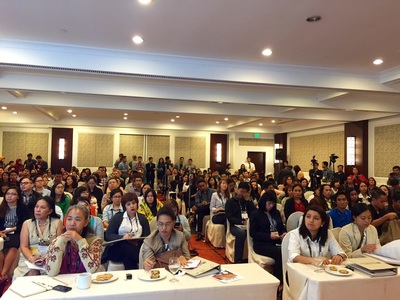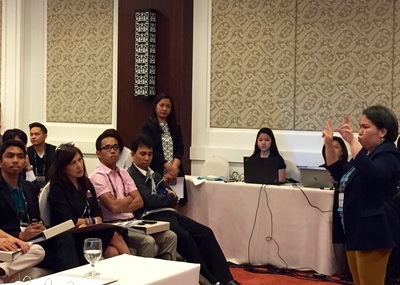Last year, the world witnessed how almost all countries agreed to address global issues that threaten humankind. As many as 193 United Nations member states unanimously adopted a global agenda consists of 17 Sustainable Development Goals to end poverty by 2030 and pursue a sustainable future. Whereas 195 nations agreed on a landmark deal, the Paris Agreement, to combat climate change, and unleash actions and investment towards a low carbon, resilient and sustainable future.
CLIMATE CHANGE
How are climate change and the Paris Agreement linked with the Sustainable Development Goals?
According to the Intergovernmental Panel on Climate Change, there is a dual relationship between sustainable development and climate change. On the one hand, climate change influences key natural and human living conditions and thereby also the basis for social and economic development, while on the other hand, society’s priorities on sustainable development influence both the Greenhouse Gas emissions that are causing climate change and the vulnerability.
The UN Water, the United Nations inter-agency coordination mechanism for all freshwater related issues, stated that water is the primary medium through which climate change influences earth’s ecosystem and thus the livelihood and well-being of societies. Higher temperatures and changes in extreme weather conditions are projected to affect availability and distribution of rainfall, snowmelt, river flows and groundwater, and further deteriorate water quality. The poor, who are the most vulnerable, are likely to be badly affected.
BETTER WATER, BETTER JOBS
The World Water day 2016 highlights how both water and jobs have the power to transform people’s lives. Water is central to human survival, the environment and the economy and decent work can provide income and pave the way for broader social and economic advancements.
Today, almost half of the world's workers, 1.5 billion people, work in water related sectors and nearly all jobs depend on water and those that ensure its safe delivery.
The basic provision of adequate water, sanitation and hygiene (WASH) services at home and in the workplace enables a robust economy by contributing to a healthy and productive population and workforce. People who have the least access to water and sanitation are naturally the most likely to have poor access to health care and stable jobs, thus feeding the cycle of poverty.
A strong climate agreement backed by action on the ground will help us achieve the Sustainable Development Goals to end poverty, build stronger economies and safer, healthier, and more livable societies everywhere.
CROWDFUNDING FOR EAST SUMBA
An effort for action on the ground is to bring water for East Sumba, a Regency with 250,000 people in the Province of East Nusa Tenggara (NTT) Indonesia.
NTT, one of the poorest provinces in Indonesia, depends on agriculture, home industry (traditional textiles) and tourism as its source of income. Its economic development, however, is inhibited by climate related disasters that are affecting water security in the area.
UNDP Indonesia and KOPPESDA, a local NGO, is working to support 500 people in East Sumba to gain access to clean water. A crowdfunding is expected to raise Rp 350 million (approximately US$26,000) to build a solar water pump so that water will be available in remote villages.
To support the worthy cause of providing water for East Sumba, please share this crowdfunding campaign information in your social media, invite your friends, and donate through kitabisa.com/bringwaterforlife. We can prove that this action on the ground will help in achieving Sustainable Development Goals.
--------------------
Text:
Amanda Katili Niode
Manager The Climate Reality Project Indonesia
Images: UN WATER & UNDP
CLIMATE CHANGE
How are climate change and the Paris Agreement linked with the Sustainable Development Goals?
According to the Intergovernmental Panel on Climate Change, there is a dual relationship between sustainable development and climate change. On the one hand, climate change influences key natural and human living conditions and thereby also the basis for social and economic development, while on the other hand, society’s priorities on sustainable development influence both the Greenhouse Gas emissions that are causing climate change and the vulnerability.
The UN Water, the United Nations inter-agency coordination mechanism for all freshwater related issues, stated that water is the primary medium through which climate change influences earth’s ecosystem and thus the livelihood and well-being of societies. Higher temperatures and changes in extreme weather conditions are projected to affect availability and distribution of rainfall, snowmelt, river flows and groundwater, and further deteriorate water quality. The poor, who are the most vulnerable, are likely to be badly affected.
BETTER WATER, BETTER JOBS
The World Water day 2016 highlights how both water and jobs have the power to transform people’s lives. Water is central to human survival, the environment and the economy and decent work can provide income and pave the way for broader social and economic advancements.
Today, almost half of the world's workers, 1.5 billion people, work in water related sectors and nearly all jobs depend on water and those that ensure its safe delivery.
The basic provision of adequate water, sanitation and hygiene (WASH) services at home and in the workplace enables a robust economy by contributing to a healthy and productive population and workforce. People who have the least access to water and sanitation are naturally the most likely to have poor access to health care and stable jobs, thus feeding the cycle of poverty.
A strong climate agreement backed by action on the ground will help us achieve the Sustainable Development Goals to end poverty, build stronger economies and safer, healthier, and more livable societies everywhere.
CROWDFUNDING FOR EAST SUMBA
An effort for action on the ground is to bring water for East Sumba, a Regency with 250,000 people in the Province of East Nusa Tenggara (NTT) Indonesia.
NTT, one of the poorest provinces in Indonesia, depends on agriculture, home industry (traditional textiles) and tourism as its source of income. Its economic development, however, is inhibited by climate related disasters that are affecting water security in the area.
UNDP Indonesia and KOPPESDA, a local NGO, is working to support 500 people in East Sumba to gain access to clean water. A crowdfunding is expected to raise Rp 350 million (approximately US$26,000) to build a solar water pump so that water will be available in remote villages.
To support the worthy cause of providing water for East Sumba, please share this crowdfunding campaign information in your social media, invite your friends, and donate through kitabisa.com/bringwaterforlife. We can prove that this action on the ground will help in achieving Sustainable Development Goals.
--------------------
Text:
Amanda Katili Niode
Manager The Climate Reality Project Indonesia
Images: UN WATER & UNDP





 RSS Feed
RSS Feed

